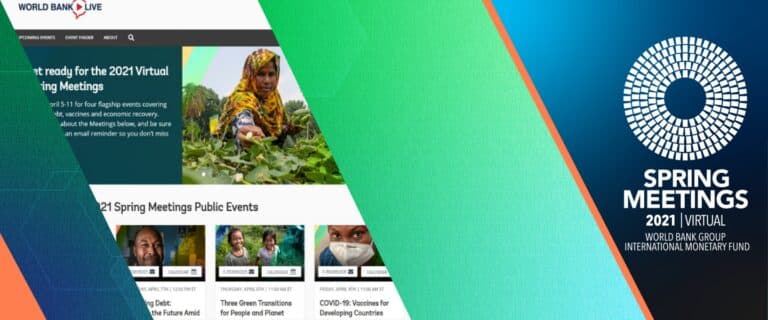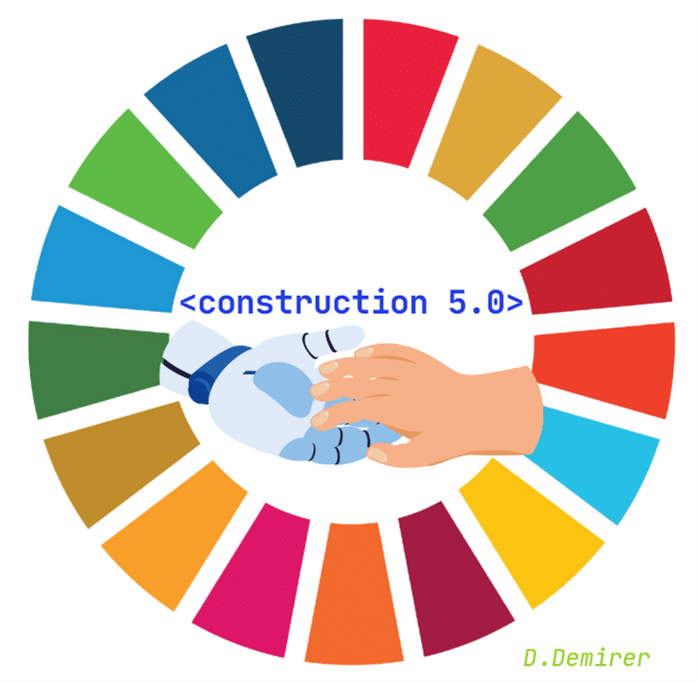This year’s World Bank and International Monetary Fund’s (IMF) Spring Meetings, which took place virtually from Monday, April 5, through Sunday, April 11, 2021, were focused on the path to a green and inclusive recovery. CICA itself participated to some sessions, notably the session on the Grievance Redress Service (GRS) and on the update on the Environmental and Social Framework (ESF) in procurement.
According to an analysis from the Think Tank OMFIF (Official Monetary and Financial Institutions Forum), the 2021 Spring Meetings produced rather modestly positive outcomes. Most significantly, the new Biden administration via its Treasury Secretary Janet Yellen, took the opportunity to underscore that the US is once again committed to multilateralism and advancing a cooperative global international economic agenda. But the meetings also highlighted that many emerging markets and low-income countries may fall behind in the years to come.
The IMF’s flagship reports, the World Economic Outlook, the Global Financial Stability Report and the Fiscal Monitor were presented. The IMF upgraded its global growth forecasts, reflecting the impact of the sharp pickup in US vaccinations, Biden’s economic stimulus package and China’s recovery. However, the recovery for emerging markets and Low-Income Countries (LICs) is expected to be difficult, given deep financial holes caused by the pandemic and slow vaccination progress.
The challenges identified during this year’s Spring Meetings according to OMFIF are the following:
- Rising US rates for emerging markets
The key point is that a surge in US rates, especially if unanticipated, can be disruptive to global markets, but the benefits of rates rising in line with stronger US growth generally outweigh the financing impacts. Despite the severe impact of the pandemic, it appears many emerging markets are thus far better weathering the current situation.
- Secured US$650bn special drawing rights (SDR) allocation
The allocation should provide a healthy infusion of resources into some LICs and emerging markets. According to OMFIF however, the bulk will end up in the hands of those who don’t need them and there is a risk that funds will be used to repay unsustainable debt to official creditors such as China or the private sector. It is pointed out by OMFIF that suggestions on addressing these concerns by reallocating SDR to the needy and increasing transparency around the use of SDR, have made little progress. Further, LICs would rather need grants and concessional finance but the reallocation is focused on SDR loans.
G7 countries will coordinate with the IMF to explore how countries could ‘voluntarily recycle their SDR holdings to further support low-income. Back in 2009, the United Nations suggested a new SDR-based ‘global reserve system’ – ‘feasible, non-inflationary, and … easily implemented, including in ways which mitigate the difficulties caused by asymmetric adjustment between surplus and deficit countries.’
- Debt Service Suspension Initiative
This initiative was extended until the end of 2021. However, LICs are still facing unsustainable debt and they would more need write-downs of bilateral official and private debts, rather than repayment deferrals. As an example, dozens of LICs have to face cumulative per capita income losses as high as 22% by 2022.
- Climate
This year’s Spring Meetings focused far more intensively on climate issues than in the past.
- Taxation
One of the key developments was that the US made clear it was now ready to move towards an agreement on international taxation – both on a minimum tax and digital taxation. However, OMFIF expects that this issue will probably face strong political opposition.
In sum, the Spring Meetings emphasized the need for cooperation and stressed priorities of the international agenda (e.g. climate change). However, it was also made clear how much further there is to go, according to Mark Sobel, US Chairman of OMFIF.


